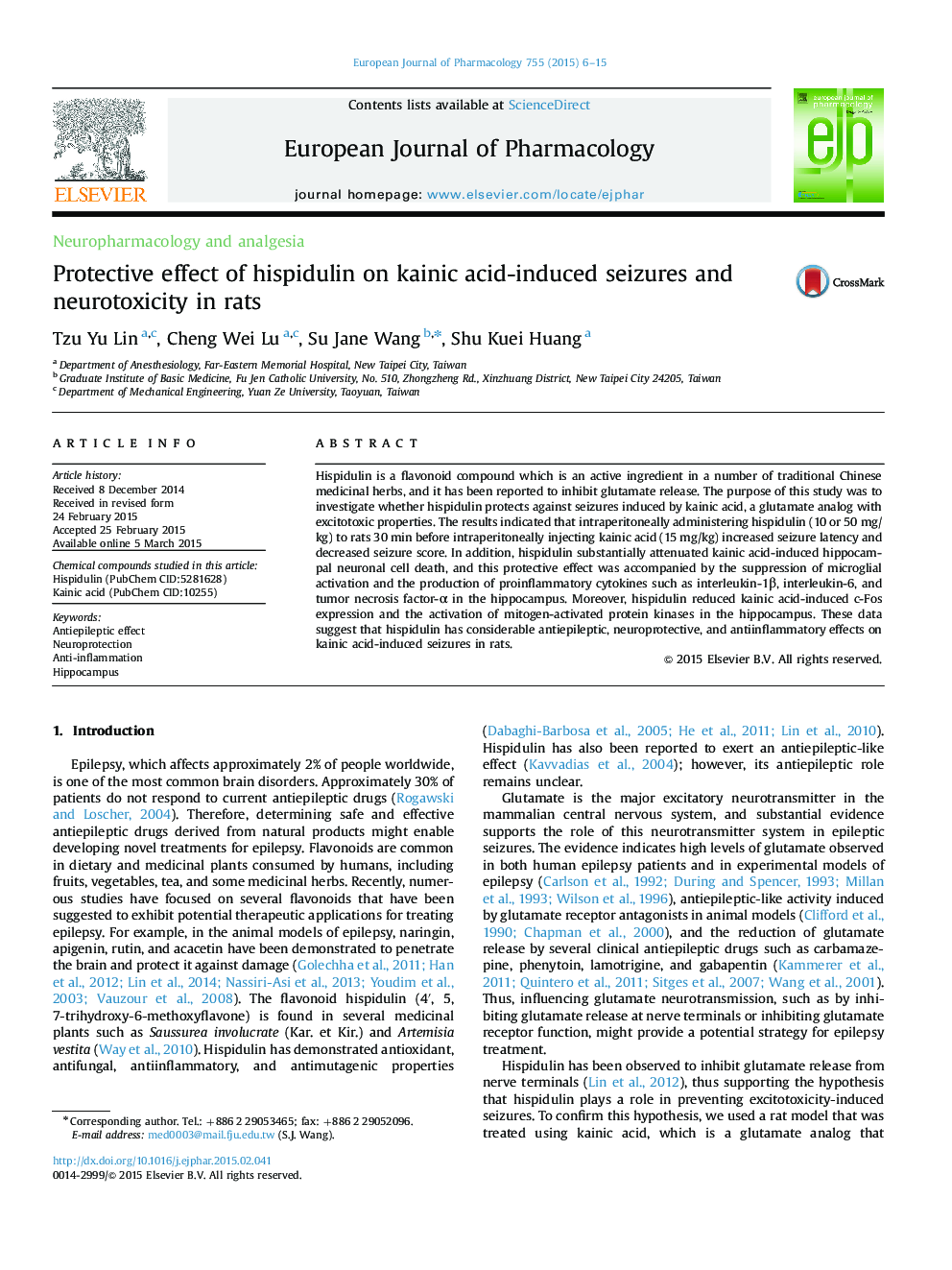| Article ID | Journal | Published Year | Pages | File Type |
|---|---|---|---|---|
| 5827387 | European Journal of Pharmacology | 2015 | 10 Pages |
Hispidulin is a flavonoid compound which is an active ingredient in a number of traditional Chinese medicinal herbs, and it has been reported to inhibit glutamate release. The purpose of this study was to investigate whether hispidulin protects against seizures induced by kainic acid, a glutamate analog with excitotoxic properties. The results indicated that intraperitoneally administering hispidulin (10 or 50 mg/kg) to rats 30 min before intraperitoneally injecting kainic acid (15 mg/kg) increased seizure latency and decreased seizure score. In addition, hispidulin substantially attenuated kainic acid-induced hippocampal neuronal cell death, and this protective effect was accompanied by the suppression of microglial activation and the production of proinflammatory cytokines such as interleukin-1β, interleukin-6, and tumor necrosis factor-α in the hippocampus. Moreover, hispidulin reduced kainic acid-induced c-Fos expression and the activation of mitogen-activated protein kinases in the hippocampus. These data suggest that hispidulin has considerable antiepileptic, neuroprotective, and antiinflammatory effects on kainic acid-induced seizures in rats.
